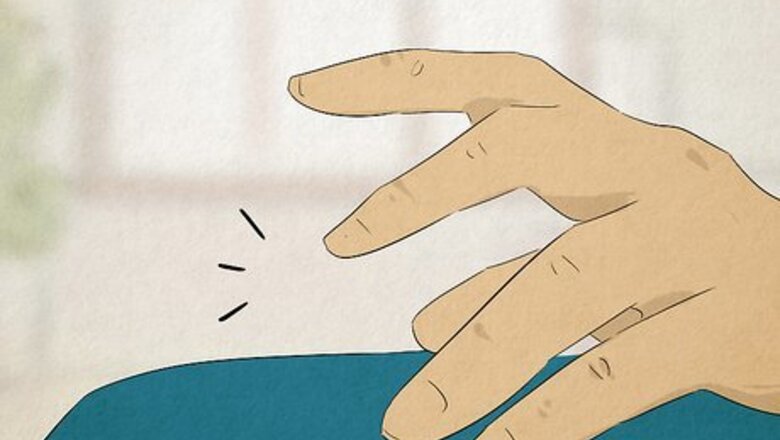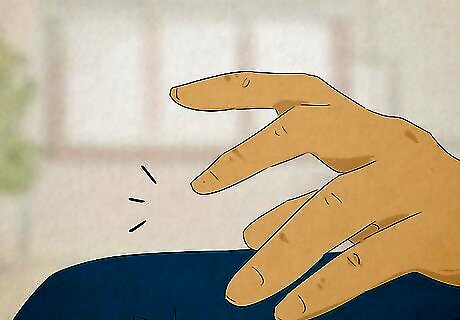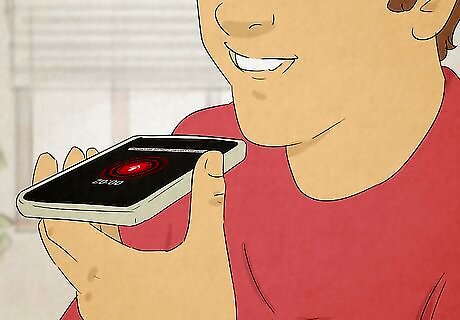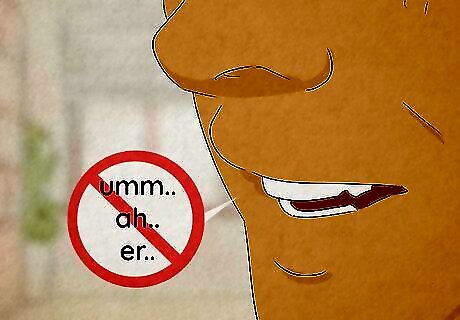
views
Tap your leg every time you say “like.”

Pair the word with an action so you can catch it faster. If you’re talking and you say “like,” quickly tap yourself on the thigh or pinch yourself on the wrist. The more you notice it, the more you can break the habit. Keep the movement small so that it doesn’t distract you from what you’re saying. You can also pull on a hair tie around your wrist or flick yourself in the leg.
Record yourself speaking.

Try to count the number of times you say “like” in 1 minute. Then, record yourself again, and try super hard not to say the word “like” at all. Try doing this a couple of times per day until you get into the habit of checking yourself on your own. You can also download an app like LikeSo to automatically count the number of times you say “like” for you.
Listen to yourself as you talk.

Think about what you say before you say it. If you’re talking quickly or you’re in a fast-paced conversation, you might be thinking about what to say next instead of what’s coming out of your mouth. Try to really slow down and contemplate every sentence before you say it to avoid saying “like.” If you hear yourself say the word “like,” that’s okay! Just make a note of it and try not to say it again in the same conversation.
Pause and take a breath.

Do this instead of saying “like” in between phrases. When you say a sentence and you come to a moment when you’d normally say “like,” just stop. Take a deep breath and let the silence fill the space in your sentence. This can also help you avoid other filler words like “um” or “ah.”
Use approximations instead of “like.”

You can use “roughly,” “approximately,” and “around.” These words are helpful in sentences where you’re trying to convey an approximate amount, like money spent or time wasted. Make your sentences sound more specific by saying things: “We spent around $500 at the mall today.” “I wasted roughly 30 minutes driving back and forth.” “We’ve used approximately 60% of our inventory.”
Try “said” instead of “like” before a quote.

You could also use “yelled,” “whispered,” or “shouted.” Saying “like” before a quote is a super common way this word gets misused, and it’s probably where you’ll hear yourself using it the most. Instead, try getting super specific with your descriptor. Instead of saying, “I was like, ‘no way!’” say, “I thought to myself, ‘no way!’” Instead of saying, “He was like, ‘I’m not interested.’” say, “He said, ‘I’m not interested.’”
Don’t modify adjectives and adverbs.

You don’t need the word “like” to emphasize your point. By omitting the word “like,” you can actually strengthen your sentences and speech. Stick to words like “very” or “incredibly” to make your sentence stronger. For example, instead of saying, “He was, like, so angry,” say, “He was very angry.” Instead of saying, "The sky was, like, so blue," say, "The sky was a deep blue color."
Expand your vocabulary.

The more words you know, the easier time you’ll have. Try reading new books, playing word games like Scrabble, or keeping a thesaurus handy to look up synonyms. If you can think of something else to say besides “like,” you’re already halfway there! You could try phrases such as “for example,” “nearly,” or “about.” You can also download apps like Word of the Day to get new words sent directly to you.
Try to only use the word “like” properly.

Use it when you’re expressing enjoyment or comparing 2 things. You could say “I really like chocolate” or “He acts like his father.” If you keep the definition in mind, you can tell when you’re using “like” the right way and when you’re using it as a filler word.
Watch out for other filler words.

“Um,” “ah,” and “er” can also get repetitive. As you cut down on your use of the word “like,” be careful you’re not replacing it with something else! When in doubt, just don’t say anything. You might also find yourself saying “you know,” “well,” and “okay.”















Comments
0 comment